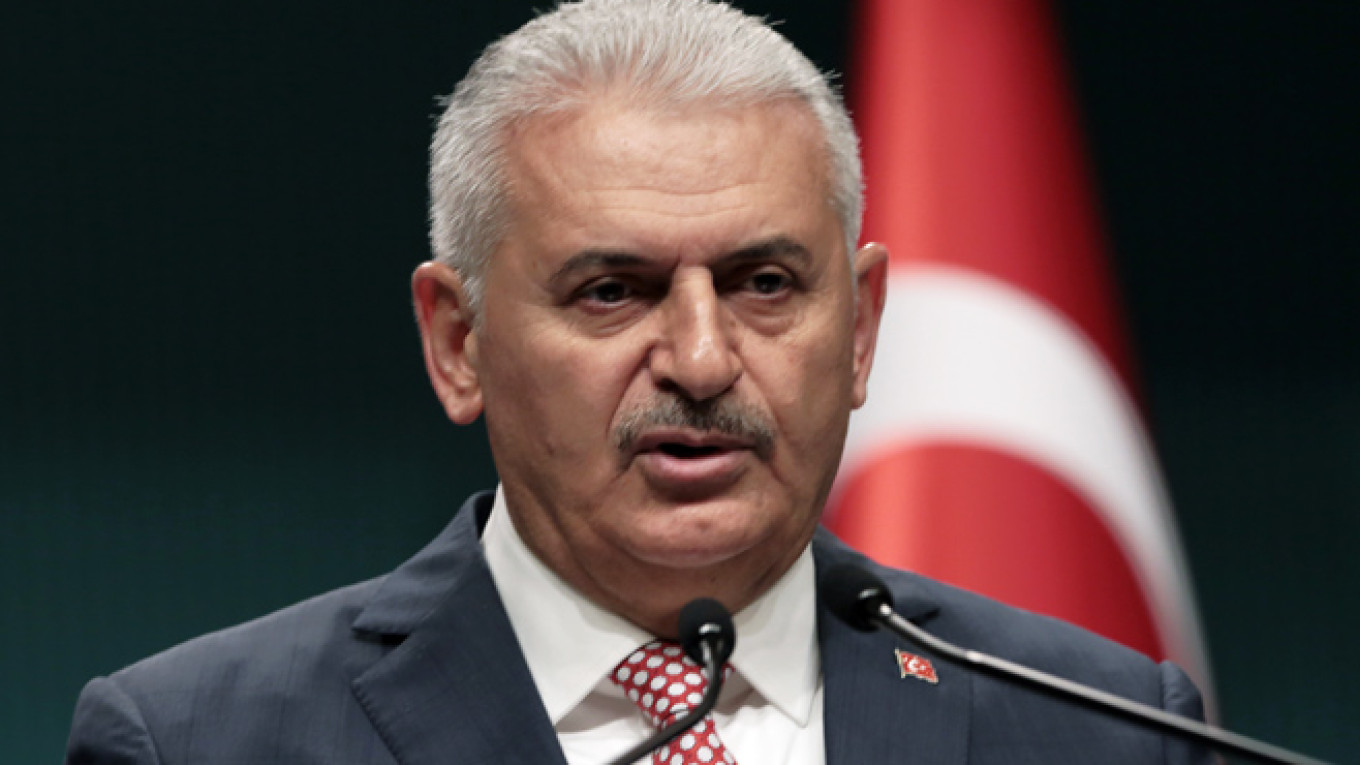Eight months after the dramatic falling out with Russia, Turkish elite is sending mixed messages. The Cabinet under newly elected Prime Minister Binali Yildirim seems ready to take a seat at the negotiating table. President Recep Erdogan, on the other hand, is, as usual, reluctant to make peace; his Russian counterpart seems no more keen.
On May 30, Turkish Foreign Minister Mevlut Cavusoglu proposed a commission consisting of Turkish and Russian diplomats and officials that would work on improving relations between the two countries. He said that his proposal was a reaction to President Vladimir Putin's latest statement. The Russian leader claimed during his visit to Greece that Turkey hasn't taken any "specific steps" toward improving the situation. Cavusoglu thought, perhaps, that creating the commission could be such a step.
But one step forward, two steps back. Later that day, Turkish President Recep Erdogan accused Russia of providing arms to the Kurdistan Workers Party, a militant organization deemed terrorist in Turkey, the United States and the EU. The accusations were prompted by an incident in May, in which Kurds shot down a Turkish military helicopter using a Soviet missile system.
"Right now, terrorists are using missile systems that Russia supplies," Erdogan was quoted by news reports as saying.
The Kremlin reacted to the contradicting remarks with its usual mantras. "Show us proof" was the answer to Erdogan's accusations; and "apology first" — to the Cabinet's proposal.
"A commission cannot solve the existing problem … It can only be done by the leader of the country," said Putin's spokesman Dmitry Peskov. That leader also needed to apologize, Peskov added.
But soon enough it became clear there will be no apology any time soon. In a statement to journalists the next day Erdogan said he was willing to work on improving relations with Russia, but didn't understand what kind of "step" Moscow wanted him to take.
The Turkish president is not going to cave, believes international affairs expert Vladimir Frolov. He might even demand an apology from Russia for the shot-down helicopter, he says: "Accusing a country of selling weapons to terrorist organizations usually sells in NATO."
In truth, Erdogan most likely knew about and approved of the idea of a joint commission. It aimed to "test the waters," suggests political analyst Yury Barmin: "The proposal to set up a joint commission was met with little enthusiasm in Moscow, and then Erdogan turned to his usual rhetoric."
As to the new prime minister ?€” it is only natural for him to try and start from a clean slate with Russia, says Frolov: "This is especially true given that Russia has been sending signals that it doesn't want any more conflicts as well." The whole situation could be resolved within a week, he adds. Mutual apologies and a compensation for the shot-down plane would no doubt do it for both countries. Creating a commission to work out such a solution is usual international practice. "But Russia's refusal to do it means that it is not ready to stop pressuring Turkey and NATO ?€” that's why it might take much longer," he says.
Both Moscow and Ankara are clearly suffering from the ongoing crisis, but there are no signs either Putin or Erdogan are ready to back down.
"This crisis might go on for many more years," says Barmin.
Contact the author at d.litvinova@imedia.ru. Follow the author on Twitter at @dashalitvinovv
A Message from The Moscow Times:
Dear readers,
We are facing unprecedented challenges. Russia's Prosecutor General's Office has designated The Moscow Times as an "undesirable" organization, criminalizing our work and putting our staff at risk of prosecution. This follows our earlier unjust labeling as a "foreign agent."
These actions are direct attempts to silence independent journalism in Russia. The authorities claim our work "discredits the decisions of the Russian leadership." We see things differently: we strive to provide accurate, unbiased reporting on Russia.
We, the journalists of The Moscow Times, refuse to be silenced. But to continue our work, we need your help.
Your support, no matter how small, makes a world of difference. If you can, please support us monthly starting from just $2. It's quick to set up, and every contribution makes a significant impact.
By supporting The Moscow Times, you're defending open, independent journalism in the face of repression. Thank you for standing with us.
Remind me later.


